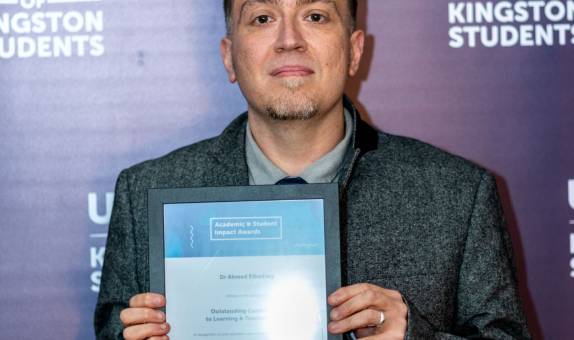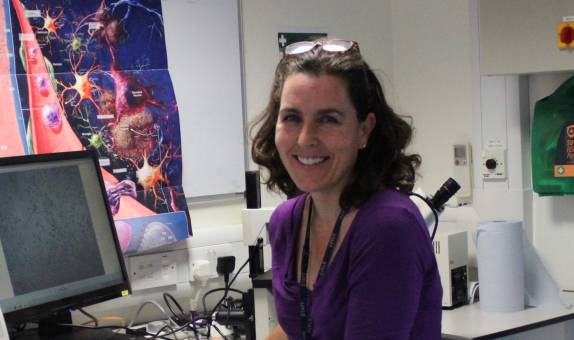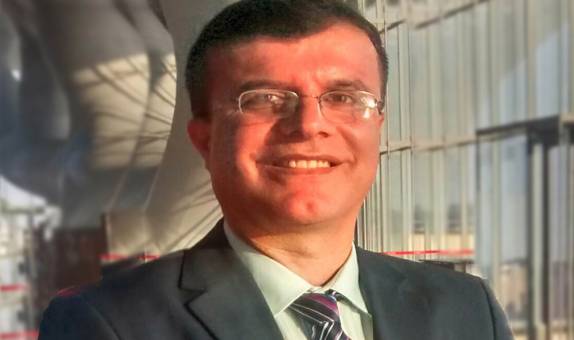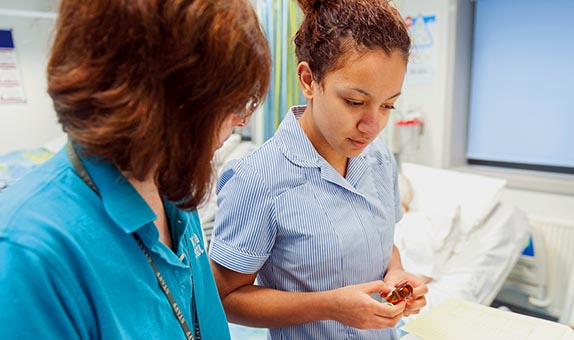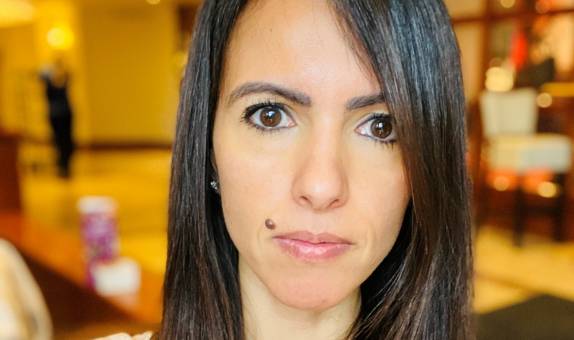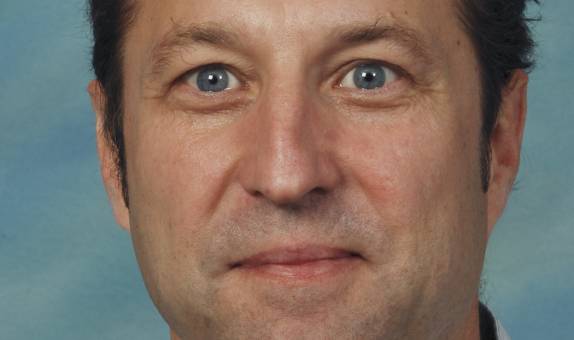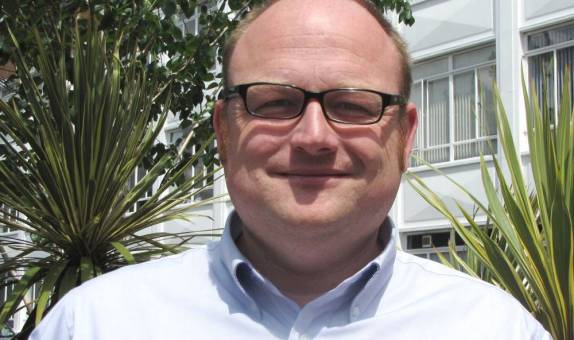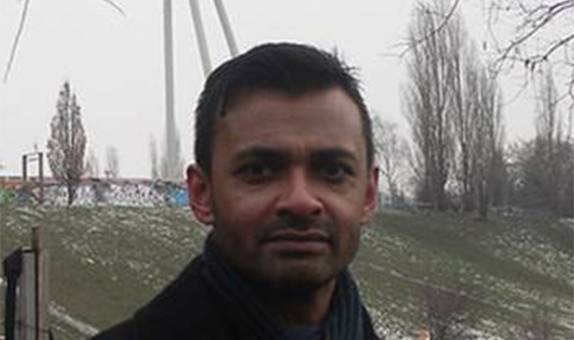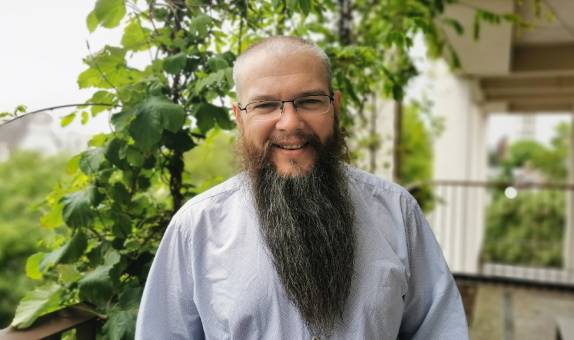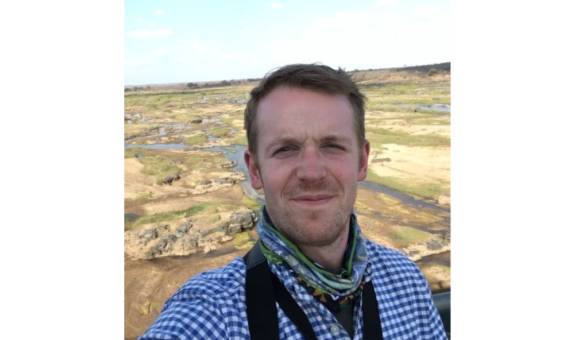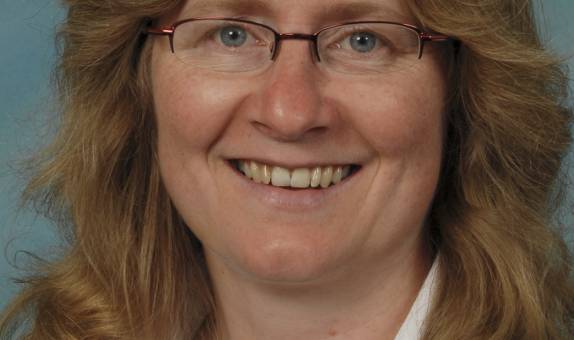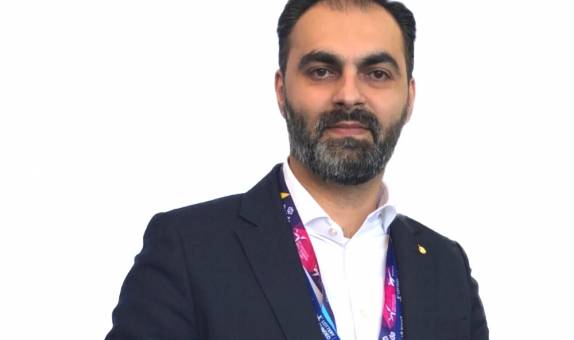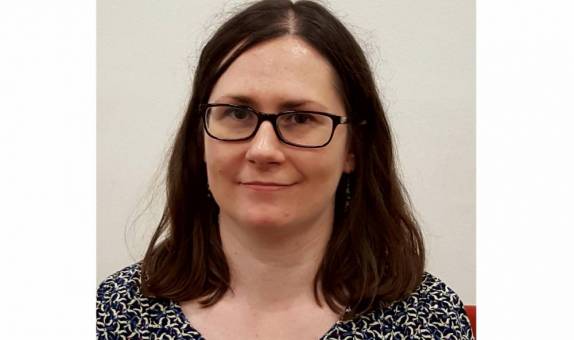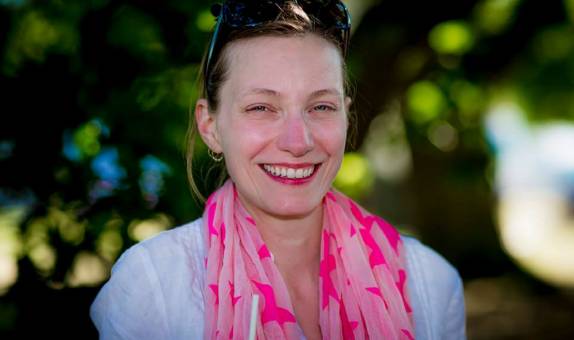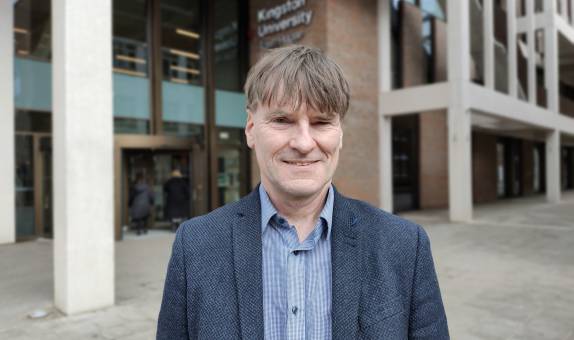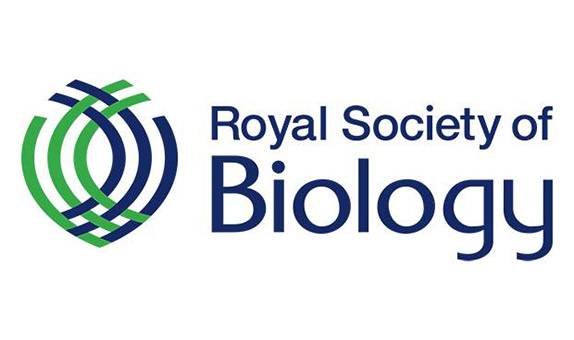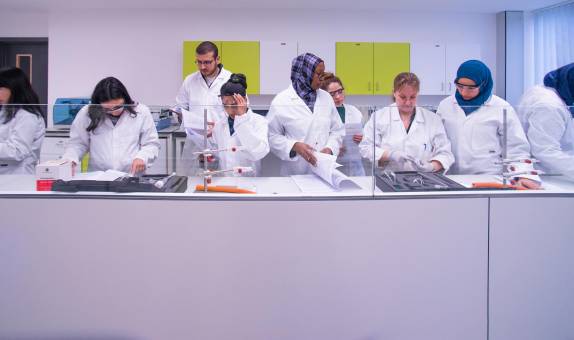Biological Sciences BSc (Hons)

Teaching Excellence Framework (TEF) Gold award
Our commitment to high quality teaching has been recognised with a TEF Gold rating. The University has received an overall rating of Gold, as well as securing a Gold award in the framework's two new student experience and student outcomes categories.
Why choose this course?
Biological sciences form the basis of many new areas of science and technology. They are the foundation of our understanding of a diverse range of subjects – from evolution, genetics and diversity to medicine, drug and human development.
On this course, you can choose to study medical biology or genetics and molecular biology.
Practical work includes a laboratory and/or field-based project, a data project or a systematic review. Project work might be based in a laboratory or organisation outside the University. You'll gain the knowledge, techniques and skills you need to boost your employability, ready for when you graduate.
This course is currently being revalidated for 25/26 entry. We are reviewing our modules to enhance the student-centred learning experience. This includes updating course content to meet industry needs and ensuring you develop the skills needed to become a future-proof graduate.
| Attendance | UCAS code/apply | Year of entry |
|---|---|---|
| 3 years full time | C111 | 2025 |
| 4 years full time with professional placement | C100 | 2025 |
| 4 years full time including foundation year | C118 | 2025 |
| 6 years part time | Apply direct to the University | 2025 |
Please note: Teaching on this course may take place on more than one KU campus.
| Main Location | Penrhyn Road |
Reasons to choose Kingston University
- This degree is accredited by the Royal Society of Biology (RSB). Once you graduate, you'll receive one year's free membership, helping you to network and keep you up to date with developments in life sciences.
- You can choose to take a four-year professional placement degree, with a year's overseas study or an industrial placement to give you a career head start.
- 100% of students thought staff were good at explaining things (NSS 2023).
- Through option modules you can tailor your degree to suit your interests and career goals.
What you will study
Year 1: common to all streams
Year 2: stream-specific modules
Year 3: stream-specific modules
Year 1 is common to both streams of this biological sciences degree – medical biology, and genetics and molecular biology – as well as a number of other degrees. It has been designed to give you a thorough understanding of the core subjects within life sciences and provides a measure of flexibility between courses.
Core modules
Genes, Cells and Tissues
30 credits
This module introduces you to basic cell biology of prokaryotes and eukaryotes, molecular, organismal and population genetics, germ layers and basic tissue types in the human body, and a variety of microorganisms. Core factual material is provided in keynote lectures and supported via material available via CANVAS. Laboratory practicals give you the opportunity to learn selected current techniques used to study cells, tissues, chromosomes and microbial organisms. The module provides an essential introduction to modules at levels 5 and 6 that develops further knowledge in cell biology, anatomy, physiology, genetics and microbiology.
The Biochemical Foundations of Life
30 credits
Learn how the building blocks of life work together to create complex molecules that sustain us. Explore the role of proteins, carbohydrates, and lipids in our bodies, and how they are broken down and used for energy.
Scientific and Laboratory Skills
30 credits
This first year module provides a firm foundation in general scientific and laboratory skills that students require to successfully complete their programmes of study. Students are introduced to the nature of studying in higher education, the need for effective time management and planning of work, the appropriate use of information sources, and to sources of information relating to careers in the biosciences. Scientific analytical and lab/practical skills are developed, together with essential mathematics and statistical skills for life scientists. A significant component of the module consists of the development of basic research skills such as practical skills in the laboratory, the principles of experimental design and the statistical analysis of data.
Human Physiology
30 credits
Understand how the human body works and how nutrition affects our health. Explore the fundamental physiological concepts behind topics such as homeostasis, cellular communication, and the movement of molecules through body compartments.
You will also cover the main physiological systems of the body, including the nervous, muscle, endocrine, respiratory, cardiovascular, renal, and of course, the digestive, systems.
In Year 2, you will follow the modules within your chosen specialism (Medical Biology or Genetics and Molecular Biology). You will develop your knowledge, techniques and practical skills, as well as additional transferable and employability skills. A course specific core module will integrate subject-specific knowledge and develop your skills in preparation for your final-year research project.
All students are encouraged to identify opportunities for work experience during the course, which may be through an optional professional placement year taken between Years 2 and 3. Alternate opportunities within the University may become available such as acting as a student ambassador.
Medical Biology route: Core modules
Proteins and Metabolism
30 credits
This is a core module for the Biochemistry and Biological Sciences courses. It is also an option module for Biomedical Science. The module provides students with knowledge of the structure and methods of analysis of proteins, with particular emphasis on enzymes. This is followed by the study of the major catabolic and anabolic pathways and investigates how organisms obtain and use energy. These processes, and their regulation in health and disease, are considered at the molecular level, which involves many proteins including enzymes.
Infection and Immunity
30 credits
Discover how the human body fights infection. Learn about the different types of microorganisms that can cause disease and how our immune system works and protects us from disease. This knowledge will help prepare you for topics covered in more detail in your final year such as food microbiology, food allergy, and probiotics and to discuss the proposed role of specific nutrients, such as vitamin D, on the immune system (e.g., in respiratory disease and COVID-19).
Research Methods and Concepts in Evolutionary Biology
30 credits
This is a core module for all students studying Biological Sciences. It aims to develop the scientific, academic and research skills that were introduced at level 4, and to relate applications of these skills to study and research in evolutionary biology and how this is associated with all elements of biological sciences. Research methods and employability skills are taught within the context of biology, evolution, genetics and molecular biology and associated employment. You will be introduced to the fundamental concepts of evolution, the role of molecular biology to investigate natural populations and biodiversity, evolutionary genomics and genetics, molecular basis of speciation, phylogenetics and the application of molecular analytical techniques in the context of environmental and medical problems. These subjects are further examined in terms of the latest knowledge, techniques and research in modern evolutionary theory. You will gain a range of practical skills including molecular laboratory methods and bioinformatics.
Pathobiology
30 credits
This module discusses cellular mechanisms of disease. In addition it considers the role of cellular pathology in the context of other pathology disciplines such as Clinical Pathology. Particular emphasis is given to laboratory aspects of cellular injury and their application in routine diagnosis. The module is delivered through lectures, tutorials, poster presentation, practicals and demonstrations. Core factual material is provided via Canvas with keynote lectures used to explain concepts. Teaching and practical session are supported by online pathology material.
Genetics and Molecular Biology route: Core modules
Proteins and Metabolism
30 credits
Learn about the structure and function of proteins, including enzymes. Explore how organisms obtain and use energy, from a molecular level to how these processes help in the regulation of health and disease.
Molecular Biology of the Cell
30 credits
This is a core module taken by student in the fields of Biochemistry, Biological Sciences (Genetics and Molecular Biology route), Pharmacology, and is an option module taken by Biomedical Science and Biological Sciences (General route)
The module builds on topics covered in LS4001 (Genes, Cells and Tissues) and explores more advanced concepts in cell and molecular biology. The module provides insight into the structure and function of cells, and takes an integrated approach to looking at how cells respond to changes in their environment - from receptor interactions and intracellular signalling pathways through to the regulation of gene expression and changes in cellular processes.
Formal lectures are supported by laboratory classes, tutorials, workshops, independent study and further resources available on Canvas. The module also includes opportunities to develop both data-handling and written skills.
Pathobiology
30 credits
This module discusses cellular mechanisms of disease. In addition it considers the role of cellular pathology in the context of other pathology disciplines such as Clinical Pathology. Particular emphasis is given to laboratory aspects of cellular injury and their application in routine diagnosis. The module is delivered through lectures, tutorials, poster presentation, practicals and demonstrations. Core factual material is provided via Canvas with keynote lectures used to explain concepts. Teaching and practical session are supported by online pathology material.
Research Methods and Concepts in Evolutionary Biology
30 credits
This is a core module for all students studying Biological Sciences. It aims to develop the scientific, academic and research skills that were introduced at level 4, and to relate applications of these skills to study and research in evolutionary biology and how this is associated with all elements of biological sciences. Research methods and employability skills are taught within the context of biology, evolution, genetics and molecular biology and associated employment. You will be introduced to the fundamental concepts of evolution, the role of molecular biology to investigate natural populations and biodiversity, evolutionary genomics and genetics, molecular basis of speciation, phylogenetics and the application of molecular analytical techniques in the context of environmental and medical problems. These subjects are further examined in terms of the latest knowledge, techniques and research in modern evolutionary theory. You will gain a range of practical skills including molecular laboratory methods and bioinformatics.
In Year 3, you will examine more advanced and applied aspects within your subject area. You will also undertake an independent project - this provides an opportunity to research a topic of your choice within your specialism as either a laboratory-based project or a library-based dissertation.
Medical Biology route: Core modules
Medical Parasitology
30 credits
This module is a core module for students studying Biological Sciences (Medical Biology). The module is also an option for Forensic Biology and Medical Biochemistry. The module provides contemporary insight into human parasites of global importance, the diseases that they cause, and the role of vectors in transmission. Arthropod borne viruses (arboviruses) are also considered, particularly in the context of co-infection with human parasites. The epidemiology of parasitic disease, morbidity, mortality and socioeconomic impacts are discussed, with an emphasis on recent advances in control measures. The module is delivered through research-informed teaching; practical laboratory sessions form an essential compliment to lectures and tutorials, demonstrating methods of diagnosis of parasitic disease and identification of vectors.
Project (Bioscience)
30 credits
You will complete your own independent research project, with the guidance of an academic supervisor. There are several types of projects you can choose from, such as a laboratory or field-based project, data projects involving acquisition of data and information from surveys, questionnaires, computer simulations or bioinformatics, or a systematic review of research literature that includes the collection, comparison and original presentation of reported research data.
You will review and critically evaluate qualitative and quantitative data to predict and answer a research question, and produce a written report.
Genetics and Molecular Biology route: Core modules
Molecular Genetics and Bioinformatics
30 credits
This module is a core requirement for students taking Biochemistry and Biological Sciences (Genetics & Molecular Biology route), and may be taken as an option by Forensic Biology and Pharmacology students.
This module introduces you to the processes involved in maintaining genome stability, causing genome variability and controlling the coding potential of the genome. Mutation, recombination and transposition, and the interplay between them, are examined as causes of genome instability. The impact of genome instability/change upon gene expression, and its control, links these two main themes of the module. The module also introduces you to bioinformatics and sequence analysis. The use of sequence databases and analysis tools permits the analysis of gene/genome variability, along with the patterns of variability and conservation of sequences. This strand of the module gives an introduction to an area of increasing importance in many areas of bioscience research, including molecular diagnostics and drug development.
Core factual material is provided via lectures, including demonstrations of the databases and analysis tools in the case of the bioinformatics elements, with additional resources being placed on Canvas. Over 50% of the teaching time in the module is spent on computer and laboratory practical work.
Project (Bioscience)
30 credits
You will complete your own independent research project, with the guidance of an academic supervisor. There are several types of projects you can choose from, such as a laboratory or field-based project, data projects involving acquisition of data and information from surveys, questionnaires, computer simulations or bioinformatics, or a systematic review of research literature that includes the collection, comparison and original presentation of reported research data.
You will review and critically evaluate qualitative and quantitative data to predict and answer a research question, and produce a written report.
Medical Biology route: Optional modules
Chemotherapy of Infectious and Neoplastic Diseases
30 credits
This is a core module for Pharmacology and an option for other Life Science degree courses, namely Biological Sciences (Medical Biology route) and Biochemistry.
This module provides an opportunity to learn about the various chemotherapeutic agents used in the treatment of both infectious and neoplastic disease. Treatments for infectious diseases will cover drugs that have actions on bacteria, viruses, fungi and parasites, while the neoplastic disease therapy will include a range of different cancers, including both solid and blood cancers. The lectures will focus on the mode of action, side effects and mechanisms of resistance of both antimicrobials and anti-cancer drugs.
Clinical Chemistry and Haematology (Blood Sciences)
30 credits
You will evaluate the contribution of laboratory investigations to the diagnosis, treatment, and prevention of disease in key areas such as renal disease, diabetes, anaemia, and haematological malignancies. Topics are introduced through a structured lecture series and further explored in practical laboratory sessions. Case histories are used to illustrate current best practice, reinforced by keynote lectures from expert practitioners in the field.
Clinical Immunology and Medical Microbiology
30 credits
This module expands your knowledge gained from the second year module Infection and Immunity. You will learn about diseases caused by overactive immunity (e.g. autoimmune disease and hypersensitivity), immune deficiency (e.g. AIDS), cancer immunology, monoclonal antibodies, and laboratory diagnostics. You will also study selected infectious diseases and their laboratory diagnosis in-depth, using an organ system approach, e.g., infections of the respiratory tract, gastrointestinal tract, and urinary tract.
Genetics and Molecular Biology route: Optional modules
Medical Parasitology
30 credits
This module is a core module for students studying Biological Sciences (Medical Biology). The module is also an option for Forensic Biology and Medical Biochemistry. The module provides contemporary insight into human parasites of global importance, the diseases that they cause, and the role of vectors in transmission. Arthropod borne viruses (arboviruses) are also considered, particularly in the context of co-infection with human parasites. The epidemiology of parasitic disease, morbidity, mortality and socioeconomic impacts are discussed, with an emphasis on recent advances in control measures. The module is delivered through research-informed teaching; practical laboratory sessions form an essential compliment to lectures and tutorials, demonstrating methods of diagnosis of parasitic disease and identification of vectors.
Drugs, Brain and Behaviour
30 credits
This research-driven module will provide a thorough background in the fields of neurophysiology and neuropharmacology and introduce a range of current topics in neuroscience, selected from such areas as cellular and molecular neurobiology, sensory and motor systems, cognitive neuroscience and degenerative neuropathologies. You will experience current research techniques and learn to critically evaluate and discuss different ways of studying the brain.
Please note
Optional modules only run if there is enough demand. If we have an insufficient number of students interested in an optional module, that module will not be offered for this course.
Foundation year
If you would like to study one of our science degrees at Kingston University but are not yet ready to join the first year of a BSc (Hons) course, you can include an extra foundation year within your chosen degree. Please see the science foundation year course page for details of modules.
Future Skills
Knowledge to give you the edge
Embedded within every course curriculum and throughout the whole Kingston experience, Future Skills will play a role in shaping you to become a future-proof graduate, providing you with the skills most valued by employers such as problem-solving, digital competency, and adaptability.
As you progress through your degree, you'll learn to navigate, explore and apply these graduate skills, learning to demonstrate and articulate to employers how future skills give you the edge.
At Kingston University, we're not just keeping up with change, we're creating it.

Entry requirements
Teaching and assessment
Scheduled learning and teaching on this course includes timetabled activities including lectures, seminars and small group tutorials.
It may also include placements, project work, practical sessions, workshops, conferences and field trips.
Who teaches this course?
This course is delivered by the School of Life Sciences, Pharmacy and Chemistry.
The School of Life Sciences, Pharmacy and Chemistry offers an outstanding and diverse portfolio of undergraduate and postgraduate programmes in biological and biomedical sciences, chemistry, forensic science, pharmacy, pharmacological and pharmaceutical sciences, and sport science and nutrition.
We've invested heavily in the development of new facilities including laboratories for teaching and research to provide students with access to ultra-modern equipment in a wide range of teaching facilities.
Postgraduate students may run or assist in lab sessions and may also contribute to the teaching of seminars under the supervision of the module leader.
Facilities
There is a wide range of facilities for practical work at our Penrhyn Road campus, where this course is based. You will have access to a modern environment with the latest equipment, including:
- the £9.8 million Eadweard Muybridge building with state-of the art laboratories;
- an exercise physiology and biomechanics lab;
- modern applied biology and chemistry laboratories
- specialist equipment, such as electron microscopes and spectrometers;
- computing laboratories and a team of IT technicians to offer assistance; and
- a newly refurbished state-of-the-art nutrition kitchen.
The Library offers:
- subject libraries, plus a free inter-library loan scheme to other libraries in the Greater London area;
- online database subscriptions; and
- a growing selection of resource material.
Accreditation
This course has been accredited by the Royal Society of Biology for 2019 entry. Kingston University graduates from this programme will receive one year's free membership of the Royal Society of Biology.
The Royal Society of Biology is the leading professional body for the biological sciences in the United Kingdom. The Society represents more than 16,000 biologists from all areas of the life sciences, as well as more than 100 organisations which make up the diverse landscape of biology in the UK and overseas. The Royal Society of Biology offers members unique opportunities to engage with the life sciences and share their passion for biology.
Whichever area of biology you wish to gain a career in, membership will help you:
- stay up to date with what is happening across the life sciences;
- gain additional recognition for your skills and experience;
- develop your professional network; and
- demonstrate your support for the future of biology.
Course fees and funding
Additional costs
Depending on the programme of study, there may be extra costs that are not covered by tuition fees which students will need to consider when planning their studies. Tuition fees cover the cost of your teaching, assessment and operating University facilities such as the library, access to shared IT equipment and other support services. Accommodation and living costs are not included in our fees.
Where a course has additional expenses, we make every effort to highlight them. These may include optional field trips, materials (e.g. art, design, engineering), security checks such as DBS, uniforms, specialist clothing or professional memberships.
After you graduate
This degree can lead to careers in the pharmaceutical, medical, food, biotech and veterinary industries, as well as teaching and research.
What our students say
How we work with industry partners
St George's, University of London
There is the possibility of visiting St George's, University of London for Year 3 project work during your degree.
What our graduates say
Work placement year
How you can work in industry during your course
Placements:
- provide work experience that is relevant to your course and future career
- improve your chances of graduating with a higher-grade degree
- enhance your CV
- lead to a graduate job
- enable you to earn a year's salary whilst studying (the vast majority of placements are paid)
- help you to select your final-year project.
"To be successful, tomorrow's leaders will need to be far more rounded individuals than ever before. They will collaborate in pursuit of shared goals. They will guide, challenge and support...They will have an appetite for change and a hunger for continuous improvement, and they will have an ethos of learning and development..." Jeremy Darroch, Former Chief Executive, Sky.
"Doing a placement year effectively gives you one foot in the door of a future job and to stand out from the crowd... as well as enhancing my CV... and future interviews. It's a great motivator to be successful in my studies as it only serves to open even more doors and gain more skills." Placement student at Jagex Games Studios Ltd.
There is a lot of support available for students looking to secure a placement (e.g. a jobs board with placement vacancies, help with writing CVs and mock interviews). Getting a placement and passing the placement year are ultimately the student's responsibility.
Examples of placements
Placements can be with large multinational companies, international companies, local companies and small start-ups; offering a diverse range of posts. Here are some examples of employers and roles:
| Construction-based placement employers | Construction-based placement roles |
|---|---|
| RG Group Multiplex Costain Willmott Dixon Fluor |
Assistant site manager Assistant trades package manager Assistant logistics manager Health and safety officer Construction engineer |
| Science-based placement employers | Science-based placement roles |
| Reckitt and Benckiser GSK Drug Control Centre Minton Treharne and Davies Ltd Various local and international hospitals |
Bioanalytical sciences Lab assistant Pharmacy assistant Sports coach |
| Engineering-based placement employers | Engineering-based placement roles |
| Airbus BAM Nuttall Nissan Bosch Wozair |
Analysis of aircraft structure Construction resources specialist Site engineer assistant |
| Computing and IS-based placement employers | Computing and IS-based placement roles |
| Disney Sony Interactive Entertainment Europe IBM McKinsey Intel |
Database coordinator Software developer Website developer App developer |
| Mathematics-based placement employers | Mathematics-based placement roles |
| Lloyds Banking Group AXA Allianz PAU Education, Spain |
Analyst Investment solutions Research analyst Accounts assistant |
Key information set
The scrolling banner(s) below display some key factual data about this course (including different course combinations or delivery modes of this course where relevant).
Course changes and regulations
The information on this page reflects the currently intended course structure and module details. To improve your student experience and the quality of your degree, we may review and change the material information of this course. Course changes explained.
Programme Specifications for the course are published ahead of each academic year.
Regulations governing this course can be found on our website.



